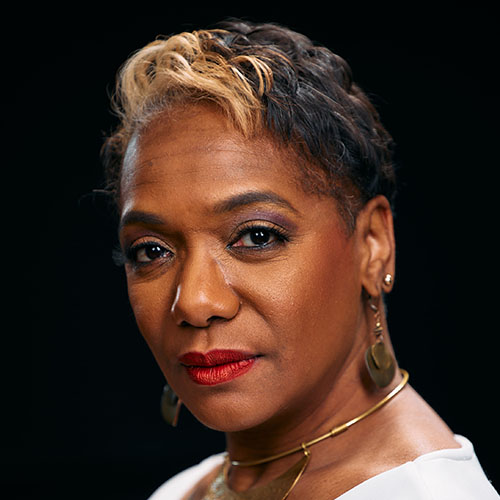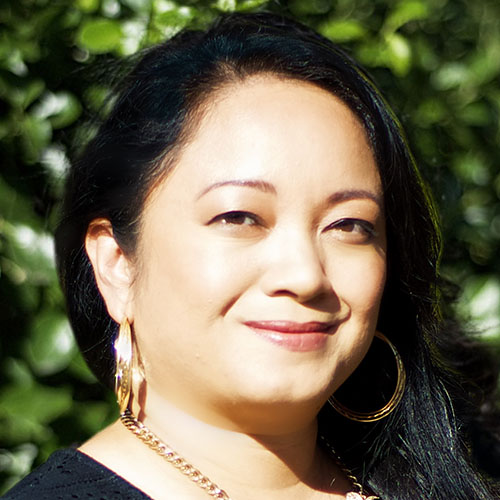
Diversity. Inclusion. Equity. Accessibility. Justice. We know the movement by many acronyms. But we may not know writers’ importance in the push to create a more equitable world.
Writers have the power to shape perceptions, disrupt stereotypes, and steer readers to a better understanding of subjects and sources. And with that great power comes great responsibility.
Those are some of the insights shared during the recent webinar from ASJA’s DEAI task force, Do You Really Want to Say That? For the event, my DEAI task force co-chair Gabrielle Gayagoy Gonzalez joined me and consultant Janet Stovall of Pragmatic Diversity to discuss how to become a more inclusive writer. We fielded questions submitted by ASJA members before the event and during a live Q&A.
You can access a free recording of the webinar on YouTube here.
Key Takeaways for More Inclusive Writing
Here are some of the key takeaways from the webinar about inclusive writers:

Question everything. Stovall, who spent the past year advising ASJA on DEAI issues, emphasized how important it is for writers to challenge perceptions and data. I shared why writers are perfectly placed to challenge assumptions: “That is our background. That’s our training. And we’re looking at these issues through a different lens from someone who’s coming (to DEAI) from compliance or (human resources). We are looking at those details and questioning how we get from A to B.” An attendee added: “Questioning everything is our superpower.”
Watch for bias. The early days of computerization introduced people to the term “GIGO,” short for “garbage in garbage out,” Stovall said. In today’s age of AI, the equivalent is “bias in, bias out.” AI tools are built on databases of biased information. Writers can change that by identifying flawed data, and training the AI tools we use to generate and share more inclusive content.
Respect the individual. At its core, DEAI is about recognizing and accepting individual experiences. One way to do that is by avoiding generalizations and stereotypes. “It’s about focusing on the individual,” Stovall said. In interviews, ask for a source’s preference for person-first or identity-first language. When writing, choosing unbiased language, such as “chemical disorder” or “substance use disorder” instead of “addiction,” can impact how the individuals we’re referencing are perceived and prioritize human dignity.
Know your why. Some writers may follow Associated Press style for capitalizing race. Others may believe that using the same convention for all races and ethnicities is more inclusive. Regardless of where you fall, Stovall counsels writers to be consistent. Gayagoy Gonzalez said knowing why she chooses to capitalize “Black” and not “white” also matters. “It’s about drawing attention to that history and getting people curious about it, similar to the way our pronouns open up a dialogue,” she said. “We can work toward that ideal of it all being the same, but we don’t all start out at the same place, and that is what it’s acknowledging.”
Other webinar highlights:

- Stovall, Gayagoy Gonzalez, and I shared our “I Am” statements, a DEAI tool used to introduce and share personal experiences based on George Ella Lyon’s poem, “I Am From.”
- Some webinar attendees may have heard the term “ACE score” for the first time when our moderators introduced themselves. The acronym “ACE” stands for “Adverse Childhood Experience.” It measures traumatic childhood events and their impact on adult health and well-being.
- Stovall announced that her second book, “Beyond the BS: How to know who you are, and what this is so you can get sh*t done in DEI,” will be published in 2025. Her first book, “The Conscious Communicator: The fine art of not saying stupid sh*t,” co-authored with Kim Clark, debuted in 2022.
Upcoming ASJA and Other DEAI Events
Watch for these DEAI task force events, partnerships, and opportunities:
Disability in journalism panel. On Thursday, June 27, broadcasting and media production company GBH and WORLD Channel will host a free panel, Disability ReFramed: In Media, Nothing About Us Without Us, to discuss how journalists can integrate disability perspectives in their reporting to better their storytelling. The panel features award-winning documentary filmmaker Dan Habib; Cara Reedy, founder of the Disabled Journalists Association; Liz Pritchard, CEO of PaperBag Comic; and Meghan Smith, senior producer at GBH News. The in-person event runs from 6:30 to 8 pm Eastern time at GBH Studios, in Brighton, Mass., and virtually 7 to 8 pm ET. Tickets are free but a small donation is encouraged. Captions and ASL interpretation will be available for both the in-person and virtual events.
ASJA monthly DEAI chat. A new ASJA DEAI chat will be held the second Wednesday of each month, with first chat kicking off July 10. All ASJA members are welcome, and are invited to bring any questions or resources related to diversity, equity, accessibility, and inclusion. The chats will cover a book club reading of “We Can’t Talk About That at Work! How to Talk About Race, Religion, Politics, and Other Polarizing Topics,” by Mary-Frances Winters and Mareisha Reese. Learn more about future chats on the members-only DEAI monthly chat page (member log in required).
Gotham Ghostwriters “Ghostmasters” scholarships. Gotham Ghostwriters is launching a virtual course to help writers learn about the business side of ghostwriting, and is partnering with ASJA to offer scholarships to ASJA members to help increase diversity among ghostwriters. The course, Ghostmasters 101: How to Break into the Business of Ghostwriting, is scheduled to meet weekdays from Sept. 30 to Oct. 11, for one to two hours, and includes recordings of all sessions. Fees run $700 and $1,500. However, through the partnership with ASJA, GG will offer five scholarships to ASJA members from historically underrepresented groups. The DEAI task force will head up the scholarship process. Stay tuned for further announcements on applications and deadline.
Leanna Lee is a future of work, DEAI, and disability writer-journalist, and co-chair of ASJA’s DEAI task force. As a disabled, chronically ill writer, she leverages her lived experience and freelance business background to advocate for work equity and disabled voices and rights in the workplace. Lee is the co-creator and co-host of the Bettermental podcast, a mental health resource for small businesses. She’s also the main author of The Chronic Worker/Chronically Self Employed, the first magazine-newsletter by and for disabled, chronically ill, and neurodivergent workers.

